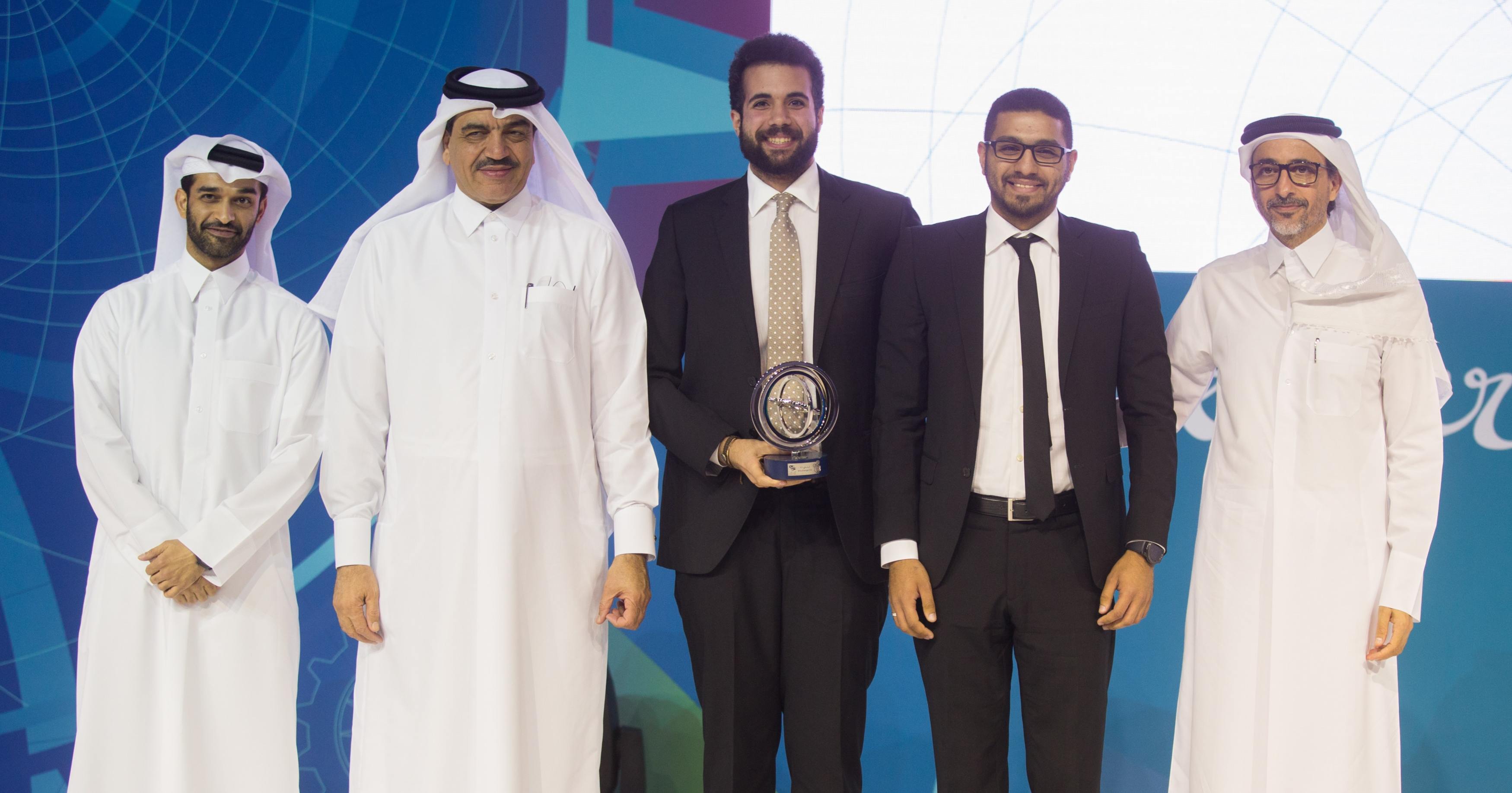.jpg)
_1-itok=GFMKQ6A9.jpg)
Challenge 22 winners Bonocle say winning the second cycle of the Supreme Committee for Delivery & Legacy's (SC) flagship innovation programme has drastically helped move their project from concept phase to what they describe as being 'very close' to market-ready.
Abdelrazek Aly, Mahmoud Eltouny, Ramy Abdulzaher and Kariem Fahmi – all Qatar residents – were winners in 2017, and have since made remarkable progress with their groundbreaking solution for a braille digital accessibility device.
"Thanks to Challenge 22 we are now very close to a product-level prototype," explained Aly. "Using the mentorship and grant money, we've been able to develop more electronics in-house, and we were able to outsource other elements, such as the industrial design, to domain experts. So we are very close now to having a product that is ready to be manufactured."
Bonocle was born in the face of adversity. Three years into his undergraduate studies, Aly was involved in a car crash that resulted in him suffering a broken right hand. In order to sit his exams, he was forced to seek the help of his university's special services department, who provided him with a helper to assist him in writing papers as he dictated.
During numerous hours spent with the department, Aly came into contact with many of the visually impaired students also attending the university – which led to the eureka moment.
"I interacted with a lot of visually impaired people and learnt about what they go through every day," he explained. "They had to get people to volunteer and write all the papers they receive in braille so they can get access.
"The team soon realised there was a lack of access to information for them. That's when the idea for Bonocle came."
A passion for increasing literacy opportunities for visually impaired people quickly developed. The team then worked out how best to provide assistive technology that anybody can afford. Soon after, Bonocle – an amalgamation of 'braille' and 'monocle' – was born.
Shaped like a computer mouse, it is an ingenious, easy-to-use electronic device that uses Bluetooth technology to transform digital content into braille messages, thereby improving access to content for people with visual impairments – and at a much lower cost than existing devices.
One of the team members, Eltouny, said winning Challenge 22 – and the subsequent mentorship opportunities – had helped develop the product further. Bonocle now features a device that allows thousands of braille books to be stored within the device, allowing users to effectively carry a braille library in their pockets.
He said: "Before Challenge 22 the project was a little bit different. Users had to touch the screen to access the braille. After winning Challenge 22 we were able to do more testing, more travelling and sit with more visually impaired individuals. They told us they would prefer it if the device was on a table – which is something they are currently used to."
Eltouny continued: "The device then changed to be in the shape of a mouse, because that is something that is more ergonomic, and something that everyone is already used to. They can use it for long hours if they are reading – and it also allowed us to add the memory aspect within the device."
In addition to the mentorship and networking opportunities afforded by Challenge 22, the grant has also provided opportunities – from travelling to Beirut to take part in an event where they were awarded the title of 'Best assistive technology start-up in the MENA region' and participation at CES 2019 the world's largest electronic expo in Las Vegas, which they had the chance to to meet with and demo their product to American pop star Stevie Wonder.
So as the quartet prepares for the next stage of development, they also took time to thank the SC for the opportunities provided during the week of activations and meetings in the Qatari capital.
"This week has had us thinking about not only what we currently have, but also what we can do in the future," continued Eltouny.
"Having the discussions with various stakeholders across the country has allowed us to think not only of the current device, but also about other solutions to help the visually impaired, whether it be in the public transportation, parks or in the stadiums themselves for example.
"We've also now agreed with the Legacy team from Challenge 22 that we will be able to pilot Bonocle in upcoming events they have. So to be able to test these solutions in a real-life event is fantastic, and something that will really help. It's a very exciting time for all of us."

